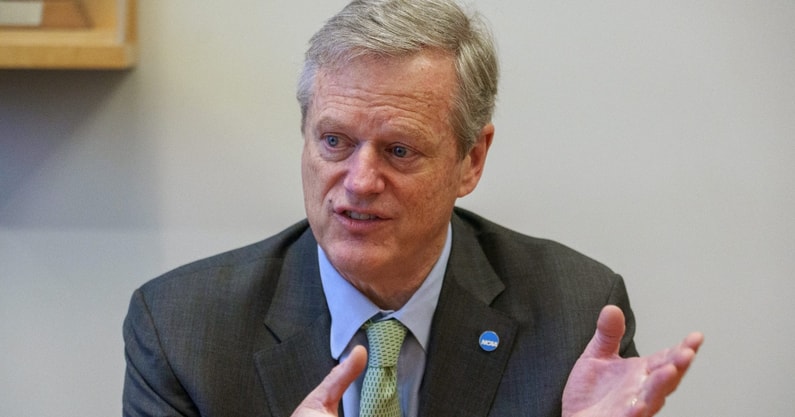NCAA president Charlie Baker speaks out against additional transfer restrictions

NCAA president Charlie Baker on Tuesday splashed water on the hopes of those who wish to see the governing body for college athletics regain control over transfers in the near future. In an interview with ESPN, Baker said he doesn’t support new rules of federal laws to limit how athletes can move between schools.
The NCAA in recent years relented from a requirement that transferring athletes sit out from athletic competition for a year on a first-time transfer. Recent court cases have also struck down rules restricting the athletic eligibility of athletes transferring beyond their first time.
And these changes have come against a backdrop of some coaches growing increasingly vocal with their dislike of player movement, fueled by these new permissive transfer rules colliding with also allowing NIL payments to athletes. Baker had little sympathy for that group.
“I’ve had conversations with a bunch of coaches who didn’t … walk out on their contracts,” Baker said, according to ESPN “One of the things I hear from kids when I talk to them about this issue is, ‘Coaches walk out on their contracts. What about us?'”
Baker also cited that college athletes are not transferring more than their non-athlete peers, despite both groups transferring more than in the past.
“Do they transfer more than they did ten years ago? Yes,” Baker said. “Do they transfer more than their peers who aren’t student-athletes? No. … They actually transfer less than students who aren’t student-athletes do, and kids just transfer more because they have more information, more data, and they’re more impatient about a lot of things.”
Top 10
- 1New
Heisman Trophy Poll
Top 10 rankings after Week 10
- 2Hot
Bowl Projections
Full list of postseason matchups
- 3
Greg Biggins
Recruiting Analyst joins Rivals
- 4Trending
Auburn Hot Board
Top candidates to replace Freeze
- 5
Dabo Swinney
Reprimanded by ACC, Clemson fined
Get the Daily On3 Newsletter in your inbox every morning
By clicking "Subscribe to Newsletter", I agree to On3's Privacy Notice, Terms, and use of my personal information described therein.
And despite lobbying from Baker and various conferences on Capitol Hill to perhaps get a law to carve out new power for the NCAA to govern college sports, he demurred on new rules to restrict player movement.
“I’m not much on that. I’m not,” Baker said, discussing how some of the laws would put stricter controls on how athletes could transfer.
However, Baker does expect the NCAA and membership to continue pursuing a federal law to allow college sports to remain mostly intact as it currently is. He told ESPN he doesn’t think the NCAA can continue existing as is without any federal intervention.
“If we don’t get it done this year, [we’ll] certainly have more examples about why it would be important to take on preemption and compensation and employment and some of these other issues in the next Congress,” Baker said.